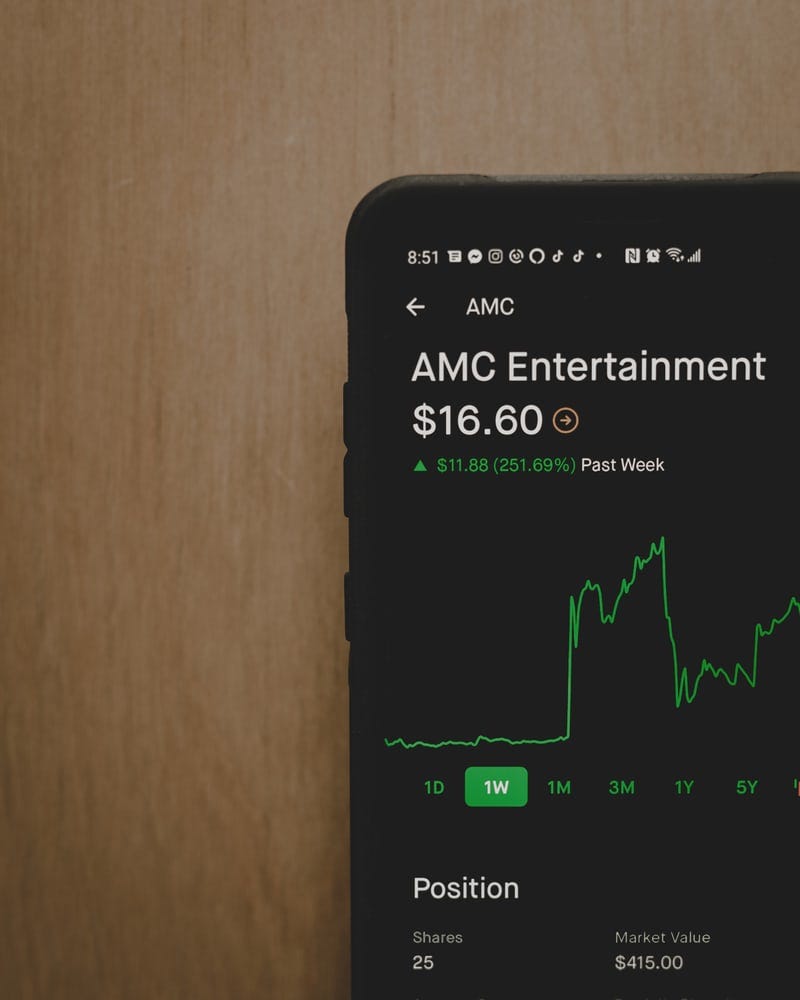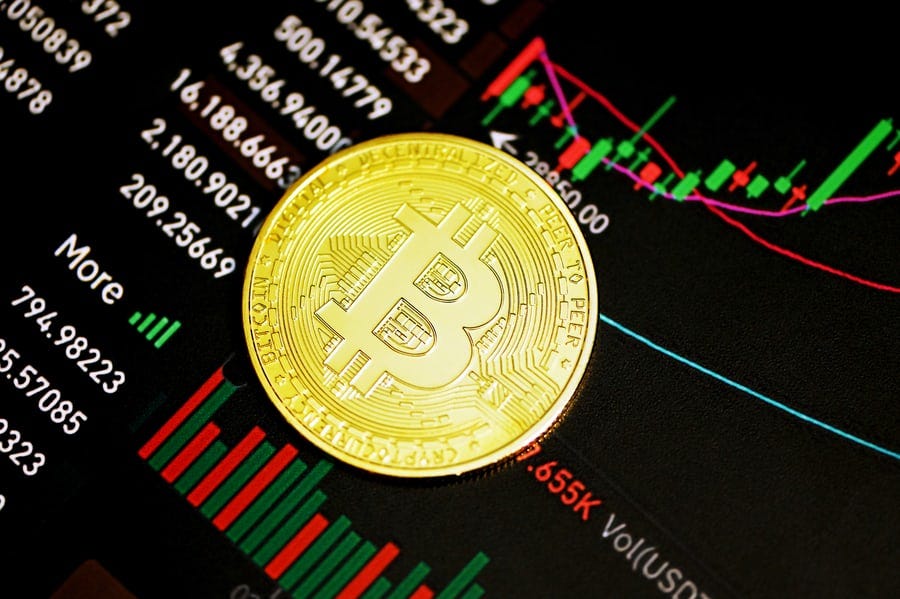Maybe too hot reaching a possible bubble on the horizon.
But for now, those who’ve been prospering the most from this boom are Millennials.
These individuals who were in their early teens during the Housing Crisis of ’08 slowly regained their momentum after a surprisingly lucky year in the market despite numerous challenges in the job market due to Covid.
They found their love for stocks or shall I say, stonks this past year. A money making machine that has ran past fundamentals and now a game they can’t get enough of. This is a good and bad sign especially since they thrive off of the volatility.
A majority of Millennials are retail traders who gamble a.k.a day trade using technical analysis techniques of pin-pointing and timing the market of charting price and volume instead of using pricing techniques of P/E, P/B, ROE, EPS, multiples, etc. fundamental values of finding value driven companies.
Instead they are seemingly focused on companies that have no future and are going through a short squeeze (when short sellers (those who bet on a stock by borrowing money to sell the stock and buy it at a lower price) buy back stock to minimize losses) fueled by the Reddit mania online.
They’ve unexpectedly came in at the right time of the crash in 2020 and aren’t leaving. But many are paying the price on their gains. Thousands have generated a sudden windfall, most notably RoaringKitty who made a couple million on shorting AMC, GameStop and Blackberry.
It’s one thing to stay diligent and learn the tricks of the trade to generate that kind of dough but it’s another challenge to keep it in tact before one ends up loosing it all like a broke lottery winner or NBA star after their first and last multi-million dollar reward.
So here are some tips to manage a sudden windfall. Most people don’t consider this a problem but it becomes one once you realize how alluring and dangerous a lump sum can be.

Prioritize Long-Term Goals
The premise of investing is to let your hard earned money that you’ve built up throughout your life work for you in order to secure your financial future. This is built on the premise of long-term investing through passive investing and goal planning.
Money isn’t the end all be all but you definitely have to have enough to ride through life, specifically when it comes to retirement, the most expensive period of your life.
Passive investing should be a percentage of everyone’s portfolio. Less when you’re younger since you can ride out the volatility and recoup the losses thanks to your longer time horizon and a larger portion if not all when you hit that Baby Boomer age.
Having an active split of roughly 30–40% at my age is recommended in order to take part in extraordinary gains and add some more momentum and volatility into your portfolio. But as a whole, your portfolio should be earning consistent gains alongside the market, not beating it out especially since no one has a crystal ball and can predict the future.
As a result, expect your money to grow but not exponentially to a point where you are living on an island and increasing your expenses by 10x fold just because BitCoin skyrocketed. Save yourself time, hassle, energy, money and do less work to see modest gains overtime.
Yet in this scenario, let’s say you unepxectley earned big in some trade. Maybe you followed RoaringKitty’s advice in January of 2021 and bought into AMC which surged in price. You sold at the peak time amassing roughly the same amount of money your parents’ house is worth, $200k in under a month.
To most kids or those who earn much less, this is an unheard of amount of money they will immediately feel enticed to spend instead of manage.
Most ignore the power of asset allocation, risk management and diversification since they assume nothing can go wrong with too much.
The money won’t go away. Checking in with your goals is key to get your money to work for you. Yes it’s fun, exhilarating and addicting to spend it right away but you need to know WHY and WHAT you will use the money for.
If you have lingering student loan or consumer debt, make sure to pay those off first since they accrue interest quick and you don’t want to be beholden to any debt since it has a negative effect on your credit score and hinders your ability to take on more loans such as a mortgage which can help you earn more income on real estate.
Next I would support that emergency cash cushion. 6–12 months is ideal. No less no more. It’s better to be safe than sorry. Just like insurance, you can’t buy it when you need it.
When you’re younger, it’s alright to have less but remember, when you loose 1 income source, you usually lose more. For example, you could have lost your earned income (W2) from your job during the recession. If you had an e-commerce shop and needed to pay suppliers on a consistent basis but unable to afford the shipping, warehouse, inventory and delivery costs, then you would’ve had to have closed as well. If you had renters or multiple properties, your renters could have stopped paying because they lost their primary income source as well. With the transition to the remote world, not only you could have lost your job due to a blow in the business, if you had kids, you would have had to take care of them while handling parent, work, chef and play time duty. Too much on your plate inhibits you from doing anything well.
See how quickly that compiles?
Prepare for the worst, hope for the best.

Separating Emotions
Taking risk is part of the game. The market is unpredictable and that’s what you have to accept getting into it yet it doesn’t mean you can be frivolous because one misstep could cost you everything, especially when it comes to trading options.
Emotions are a big indicator of making decisions. We are told to follow our first instinct and gut. Even Bezos proclaims he doesn’t make decisions based on analysis or fundamentals due to thinking overload. He takes time alone and makes it purely on how he’s feeling. Some would disagree, myself included for certain situations but it seemed to work well for him.
Unfortunately, that just won’t slide in the markets. Emotions are the enemy since it’s temping to be fearful when everyone else is selling yet what’s best for you might not always work for someone else.
Clearly you want to buy into the stocks that others are investing in since there’s obvious growth and potential, but being fearful when others are greedy and greedy when others are fearful will help you more than you think.
Volatility is expected but if you don’t pay attention to intraday volatility, you’ll be better off. Pay attention to the market as a whole and long-term back to your goals. It’s unrealistic for your portfolio to stay in the green all day long but ending the year in it isn’t so unlikely.
Don’t sell when everyone else is selling. Buy the dip, buy low, sell high or to avoid taxes, don’t do so at all! You’ll thank me later. If you’re indecisive about something or feel uneasy, it’s usually a sign to take a break. The market will always be there but your money won’t if you make a misstep.

Get the Gist on Taxes
Taxes are like financial literacy. They’re vital topics and we can learn it on our own if we put in the time to save thousands hiring an accountant or tutor, but it seems complex to 80% of the world.
The most prominent word in the investing world when it comes to taxes is capital gains tax. If you generate gains (a return) on your invemsnts and decide to sell under a year, you will have to pay income tax or short-term capital gains on top of your marginal tax bracket. Your tax bracket is determined by your income and where you live.
Another advantage to long-term investing along with less headache, volatility, wasted money and computation, is that you can take part in a tax-harvesting strategy to pay less in taxes. With a windfall this is ideal. Why cash out? Unless it’s your AMC gains that happened by accident and the stock is now free falling, selling your gains after a year will be taxed capital gains which is substantially lower than income tax.
When it comes to cryptocurrency, the most traded asset per volume and profitability count this year, keep in mind that a sale or exchange from one cryptocurrency to another will count as a taxable event. To minimize coming tax bills, tax-loss harvesting is the way to go.
This is selling losers strategically to reap losses that can offset the taxable profits from winners since you don’t pay taxes on money you lost!
Another annoyance for crypto investors is keeping track on trades on file. While brokerage firms must keep records about stock trades and send information to the IRS, crypto exchanges don’t have to do this yet you want to make sure you understand when you are selling to avoid audit or fishy business. To avoid penalties at tax-filing time, you may need to pay quarterly taxes to the IRS.
You can move your money for taxes at the time of a sale into a separate account so it isn’t in danger of being spent or mismanaged. For those who are charitably minded, large taxable gains can be offset by giving it away for tax deductions. Donors who make gifts of appreciated assets to charities don’t owe capital gains tax on the appreciation.

Short-Term Goals
Although long-term goals often seem intimidating since they are years away such as retirement, college or a wedding, setting short-term goals such as planning a vacation, purchase of a new car or setting up life insurance or a trust needs to be handled immediately to avoid any immediate burden and miscommunication when it comes to inheritance and realistic spending.
Ultimately you always want to live below your means and can still do so while saving 60%+ of your income. Diversifying your portfolio is your best bet when you have incurred a large lump sum because if a company goes through a liquidity event, you never want to hav all your eggs in 1 basket and be heavily weighted toward one stock.
With every windfall, there needs to be a plan. Hoping to buy a Lambo or new mansion are the worst splurges because they don’t offer an investment whatsoever and you simply spend to impress. Even a house doesn’t immediately appreciate in value unless you keep it for at least 5 years, sell it above purchase price, it’s location is in demand and you have stable renters.
Use the money to propel your future. Investing in yourself is your best advantage since it pays dividends for a lifetime and education cannot be taken away from you.
We all have to live. That’s part of earning and working. Yet it’s crucial to realize that everything is more expensive than it seems and you don’t need as much as you think. So before you cash out and spend 90% of it like foolish first year investment bankers or Reddit gamblers, understand your ROI from each expenditure.
Will your future you be proud?

Listen Carefully
Everyone on Wall Street a.k.a Discord and Reddit believes they know more than they really do. With only 14 or so states requiring students to take a financial literacy class to pass HS, majority of the U.S., 70%+ to be exact, aren’t invested nor know nothing about it.
Yet, that doesn’t mean you SHOULDN’T invest. You just need to educate yourself and learn along the way. Our losses always sting more than our gains. Loosing money is the best way to learn because you take extra precaution to avoid it next time.
Seeking advice from anyone online is as dangerous as it gets. For a little extra money, when first starting out, I would highly recommend speaking to a fiduciary, financial advisor/portfolio manager or even teller at your bank.
A few years ago, I signed up for a free portfolio customizer review from Personal Capital and SoFi. They provided me recommendations on where to allocate my funds and how to go about investing all for free. See what they say and if you agree. Don’t sign off on anything long-term or give away your assets for them to manage just yet. See if you align with their recommendations and pricing as well. Hedge fund managers to portfolio customizers earn the most on those pesky fees which run from a commission basis (making money based on trades placed) or AUM (Assets Under Management).
Lastly, remember brokerages make money regardless if you loose or gain. They have no crystal ball and are simply trying to predict the future. You don’t need to study finance nor have a degree to manage your funds. Just some insight into how the market is moving, what trades you believe will prosper long-term, how different asset classes are shaping up and your appropriate risk tolerance will do.
Money is extremely personalized and individualized. No wonder it’s such a taboo. If you don’t trust lending out money to someone, then you shouldn’t trust listening to them. Putting in a little extra time and effort today to seek the appropriate advisors who are trained to provide tailored advice in YOUR best interest or read upon the market yourself is key.
Windfalls have that name for a reason. If you don’t have a plan, you can’t get anywhere. Money is straightforward if you let it appreciate in value. Don’t collect more junk to impress others and waste your life.
It’s too precious to be wasted. Enjoy life and spend appropriately. Pay yourself first and don’t treat it like a huge prize.

